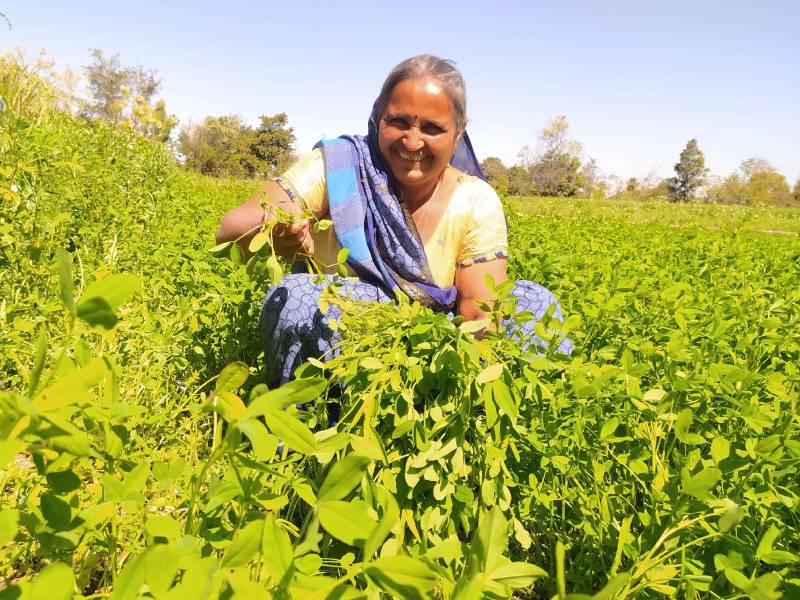
At 50, Sona Bai
stands as a shining example of determination and resilience. A resident of
Bamaniya Khedi village in Agar-Malwa district, she owns about 1.5 acres of
agricultural land. Supporting a family of five on this small piece of land was
always a challenge. Yet, Sona Bai never gave up.
Her journey took
a turn when she became actively involved in the Good Farming-Good Food-Good
Health programme by Solidaridad. As a member of a local womens self-help
group, she began attending community meetings and training sessions organized
under the initiative. These interactions opened her eyes to more sustainable
and scientific ways of farming.
For years, her
family had followed conventional methods – using chemical fertilizers based on
the shopkeepers advice, watering crops without checking soil moisture, and
sticking to a single crop season after season. The result was low yield and
rising input costs. But after engaging with the programme, Sona Bai started
adopting better practices.
With guidance
from Good Farming- Good Food field teams, she set up a vermi compost unit
at home. The shift to using organic fertilizer not only improved the health of
her soil but also cut down her expenses on market fertilizers by nearly ₹14,000
annually. In the last kharif season, she planted soybean (JS-2098
variety) on a one-acre demonstration plot. Earlier, she would get 4–5 quintals
per acre. This time, she harvested 8 quintals, earning an additional ₹22,000.
She also learned
the importance of seed treatment and pest control. For the first time, she
treated her seeds with Trichoderma, which protected them from fungal
infections and boosted germination. Simple tools like yellow sticky traps and
pheromone traps helped control pests naturally. Today, her fields are greener
and her crops healthier—thanks to organic practices.
Excited by these
results, she began using compost for her vegetable crops as well. Were eating
better food at home now—chemical-free and nutritious, she says with a smile.
With the profit from soybean, she bought a buffalo for ₹40,000, which
now brings in ₹150 a day through milk sales. Her family consumes the
rest of the milk.
Earlier, the
family left their land fallow during the summer. But with advice from the field
team, theyve now started growing seasonal vegetables, turning idle land
into income.
Sona Bais story
also reflects a growing confidence in decision-making. She now uses mobile
advisories to plan irrigation, pest control, and other crop activities. A
weather station near her village provides regular updates. Whenever I have
doubts, I just give a missed call and get guidance for the entire crop cycle,
she says.
In the current rabi
season, shes growing wheat (PUSA Hi-8759 Tejas) using only compost and
following advisory updates closely. Encouraged by her success, shes taken 4.5
acres of land on lease from relatives to expand farming.
Recognizing her
dedication and growth, she has also become a shareholder in the Farmer
Producer Organisation (FPO) Malwa Mati, formed under the programme. The FPO
is helping farmers with seeds and exploring cattle fodder as a new business.
The local coordinator, Shri Mukesh Jain, shares, Sona Bai is one of our most
active members. We are considering her for a role on the Board of Directors.
From struggling with low yields to becoming a role model in her village, Sona Bai has come a long way. Her story reflects what can happen when knowledge meets courage—and how good farming truly leads to good food and better health.




